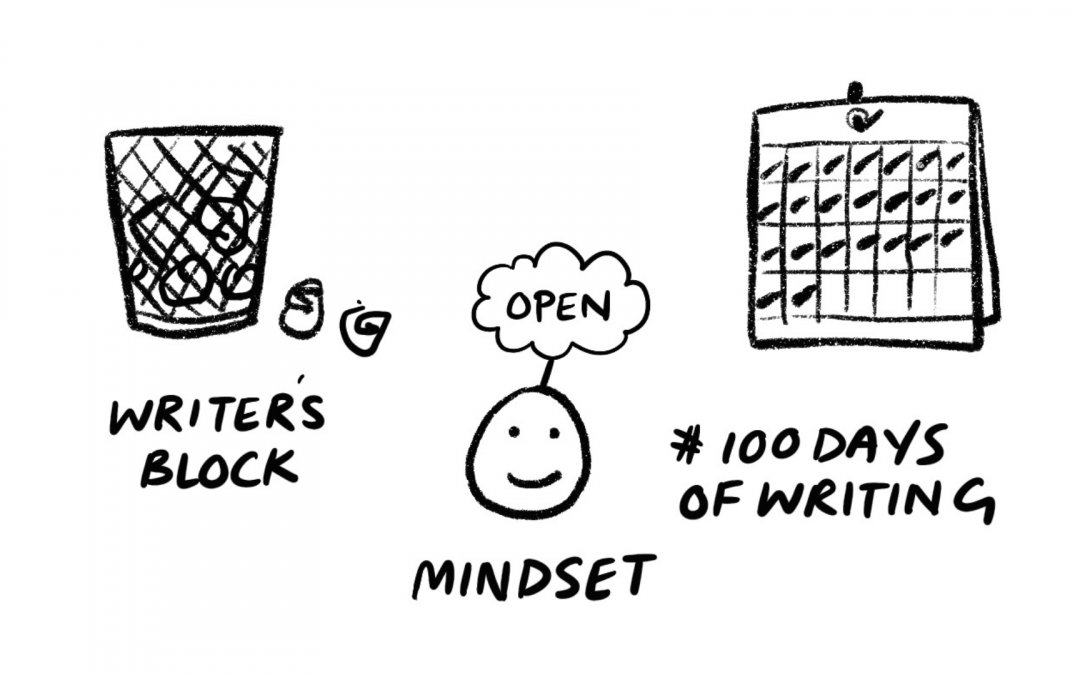Writers’ block manifests itself in different ways but the outcome is often the same. The writing slows, you can’t figure out a way forward, writing sessions feel arduous, and procrastination takes hold. How to get unstuck will be personal to you and the particular challenges you face. However, over the years I’ve learned that you can ease yourself out of a sticky writing patch by asking some simple questions.
Here’s five questions to ask yourself the next time you’ve got writers’ block and are feeling stuck.
1. Am I being realistic?
It’s normal to want to be the very best you can be and to look to others to help you decide what ‘best’ should look like. But your ambition to write must be grounded in the reality of your life – the time you have, the effort the writing might take, the interruptions you’re likely to face and the emotions that might get in the way.
Simply believing you should or ought to be able to write in a certain way but repeatedly failing to do so is downright demotivating. Just because you’ve been able to write in a certain way in the past doesn’t mean you’ll be able to so now. Your life has changed – and that’s fine.
Don’t compare yourself to others and how they get the writing done – everyone is different. What works for one person might not work for you.
Before you set a writing goal, consider:
- What can you realistically do based on your life as it is right now? And what can’t you do?
- How long has it taken you to complete a similar task in the past?
- What kinds of things typically get in the way? How likely is it that they’ll get in the way again? What new obstacles might hold you back?
- How could you avoid each obstacle? Are these obstacles unavoidable (if so, accept them), or can they be managed in some way?
>> Read more: Overcome your writing blocks with obstacle thinking
2. Can I make my writing goal smaller?
When you set yourself a very large and overly ambitious writing goal you risk triggering the fear centres in your brain. It’s better to do something small that nudges your writing forward rather than trying and failing to achieve something too big. Getting a few quick wins under your belt is far more productive and positive long term than having large, overwhelming goals that never go anywhere.
Making your goal smaller means scaling back. It could be that that you write for less time or aim for fewer words. Initially, the steps you take can be VERY small. That’s okay. Focus on the process, not the outcome for now. Think of your small steps as temporary. You can always increase the amount you write later on.
Don’t anticipate the large project ahead of you – this will overwhelm you. When you’ve reached the end of your writing session, zoom in and keep focussed. What will you achieve next time? Go step by step. Word by word. Take it slow, make it small – it all adds up.
>> Read more: How small steps lead to great progress
3. Am I being specific enough?
Sometimes we get stuck because we don’t know where to start or because our writing goals are too vague. Vague goals confuse our brains – we don’t know where to start so we don’t. As well as making your goal smaller, make it as precise as you can and sharpen up the fuzzy edges.
- If your goal is to ‘write chapter three’, where in chapter three will you start? Are you drafting, editing, rewriting or polishing?
- If your goal is to ‘finish’ what does ‘finishing’ look like? How will you know when you’re done?
- If your goal is to ‘begin’, begin what? What will you tackle first? Make it specific and make it small?
If you’re still not sure, it often helps to introduce constrains and give yourself a process goal. So, ‘write 100 words’, ‘write for 40 mins’ or set a pomodoro timer and write against the clock.
>> Read more: How to stop procrastinating for good: a guide for writers
4. Does it really need to be perfect?
It’s admirable that you want your words to sing on the page but writing is a process of editing (and more editing) so accept that your early versions will be drafts. Clearly, at some point your writing will need to be up to scratch but do your words need to be perfect now? It might be helpful to think of your first draft as ‘draft zero’ something to come back and edit at a later stage. If you’re at an early stage don’t edit as you go – just write.
It’s okay to leave gaps, it’s fine to leave yourself notes on the page like ‘add description’ or ‘research this’. Omit whole sections if you might end up getting distracted and pulled away from the flow. Ask yourself: do I need to research this now? The key is to move forward and have words on the page. Good writing is rarely great first time so don’t ever compare your first draft to someone else’s published, polished version.
5. Can I be kinder to myself?
We’ve all done it. You feel stuck and your feelings of stuckness slowly morph into feelings of frustration with yourself. So, as a means to punish yourself further you decide you won’t allow yourself to even go and get a coffee and clear your head for just one minute!
When you feel like this, the very best thing to do for your productivity, your physical and mental health is to get away from your writing desk and have a break. Staying at your desk is demotivating, damaging and totally counter-productive. Writing will always involve moments that make you want to tear your hair out – stop and notice when you’re feeling like this and know how to respond.
If you’re prone to moments of self-flagellation and despair, it can be helpful to write down what you’ll do and pin it up somewhere prominent so you can’t ignore it. Complete and copy out this sentence:
The next time I’m in a writing fug and feel I MUST stay at my desk I’ll do……………
>> Read more: How to set a writing goal: the ultimate guide
BONUS! Can I do something different?
It’s easy to fall into mental ruts about how to get the writing done. One of the reasons we get stuck is because our mindsets become fixed and we assume things about ourselves that aren’t necessarily true. Getting unstuck is about keeping an open mind, asking yourself questions and being experimental.
- If you believe you can only write in long periods of time (but can never find any), try a different method. Have a go at writing in a few short chunks of time. Write spontaneously and grab pieces of time when you can.
- If you feel certain you can’t progress without more research, more reading etc (and this is leading to procrastination) take the 10-minute test. Try writing for 10 mins. Have a go and see whether you can write – don’t assume you can’t make progress in a few minutes. If you can write, carry on, if not, you can stop and switch tasks guilt-free.
- If you believe that the best thing to do right now is to grind it out and stay at your desk – do the opposite. Get up, take a break, go outside. Test the assumption – you never know a change of scene might shake things up.
- If you feel certain that you MUST write thousands of words but you’re not making any progress, write less. Write a paragraph, a sentence. Write for 10 minutes, five minutes! Start off super-small and build up slowly.




